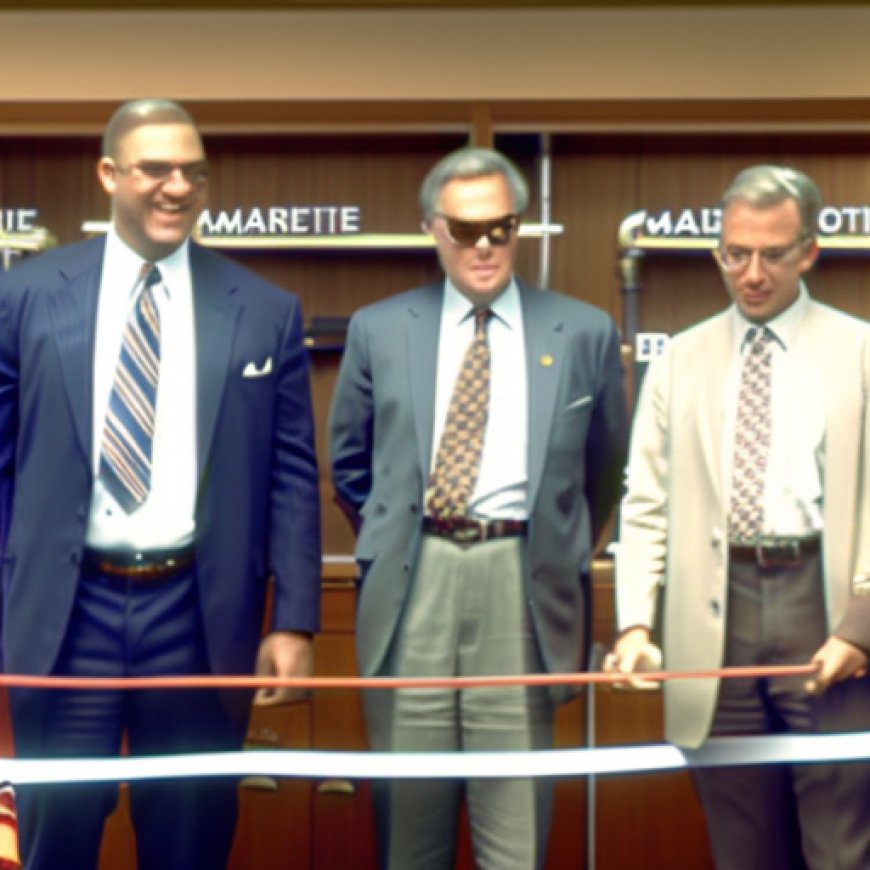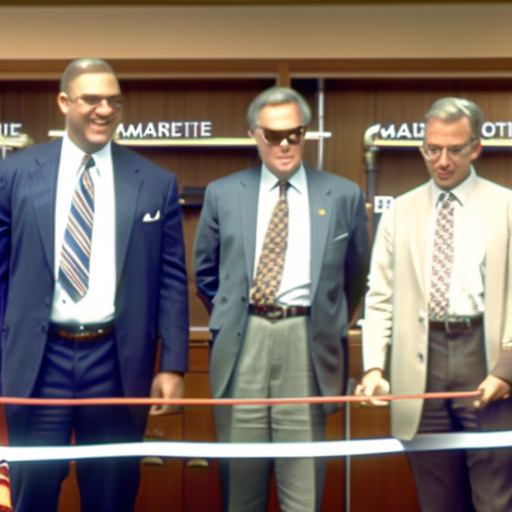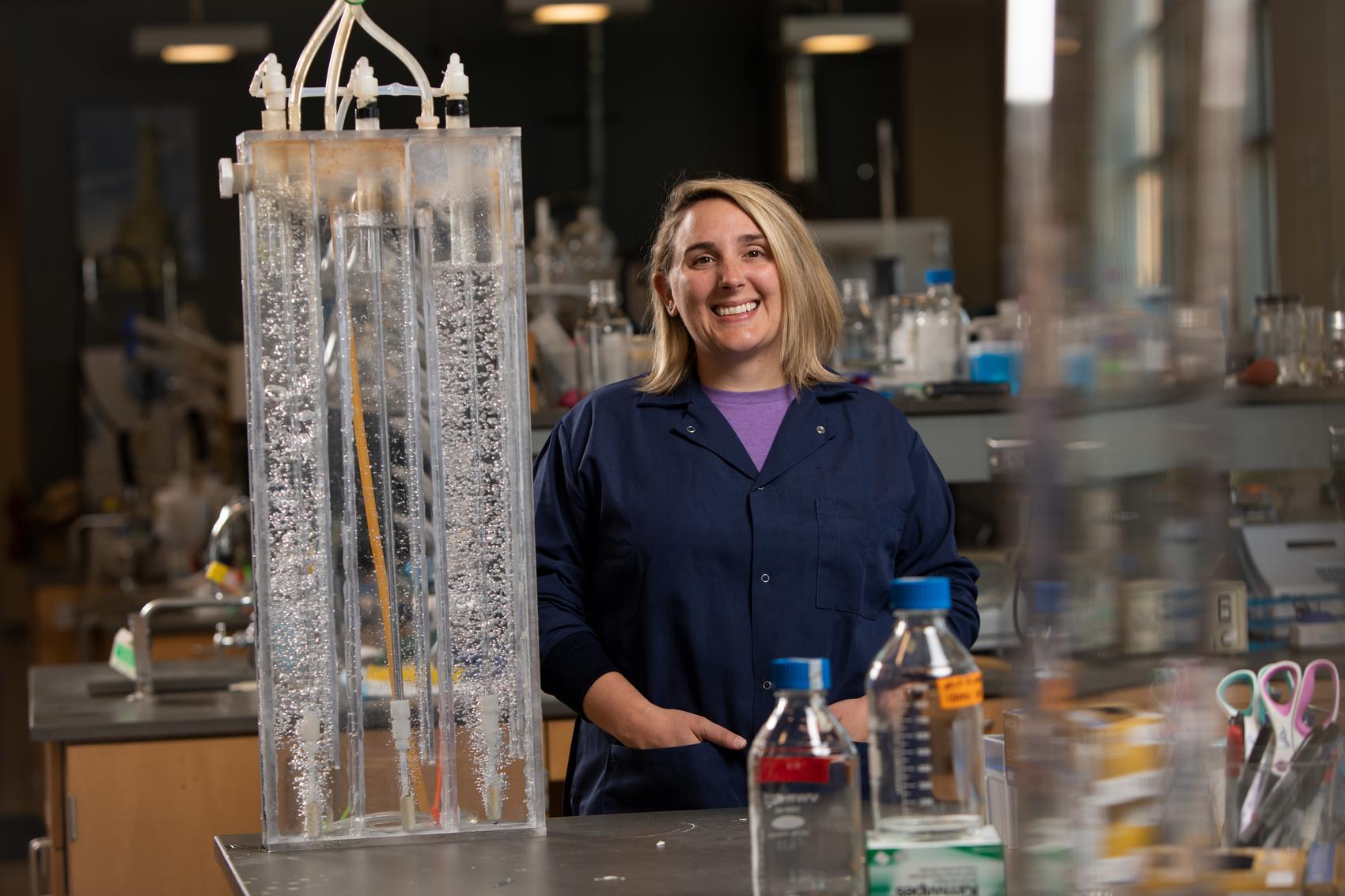Marquette, Rapid Radicals to cut ribbon on groundbreaking wastewater pilot system // News Center // Marquette University
Advisory: Marquette, Rapid Radicals to cut ribbon on ... Marquette Today


Marquette University and Rapid Radicals Technology Host Ribbon-Cutting Ceremony for Pilot Wastewater Treatment System
Aug. 8, 2023

Introduction
Marquette University and Rapid Radicals Technology, a startup founded to commercialize technology originally developed at Marquette, will host a ribbon-cutting ceremony for its pilot wastewater treatment system on Thursday, Aug. 10, at 3 p.m., at the Milwaukee Metropolitan Sewerage District facility located at 5901 W. State St.
Rapid Radicals Wastewater Treatment System
The Rapid Radicals wastewater treatment system is designed to provide a treatment solution for sewer overflows that also works for other municipal and industrial applications. It treats water in 20 minutes compared to the 8-14 hours required for conventional treatment. It requires a small physical footprint, is cost-effective, and treats water to advanced water quality performance.
Ribbon-Cutting Ceremony Details
The ribbon-cutting will be outside the pilot system, which is housed in a traditional shipping container.
Dr. Paige Peters, Rapid Radicals founder and chief technology officer, will be on-hand and available for interviews.
Peters is a triple graduate of Marquette and is a teaching team member for National Science Foundation’s Great Lakes I-Corps Hub program at the University of Wisconsin-Milwaukee. She additionally is a professional mentor with the Madison Area Professional Chapter of Engineers Without Borders on water supply and distribution projects in Guatemala.
Event Information
- When: Thursday, Aug. 10; at 3 p.m. (program is expected to run for 50 minutes)
- Where: Milwaukee Metropolitan Sewerage District facility, 5901 W. State St.
Media interested in attending the ceremony should contact Kevin Conway, associate director of university communication, at kevin.m.conway@marquette.edu.
Research and Development
Initially supported by the National Science Foundation-funded Water Equipment and Policy – Industry/University Collaborative Research Center, the research behind this pilot system focused on developing a high-rate advanced wastewater treatment process. Marquette’s Office of University Relations has filed patent applications on this important technology and recently completed a pivotal intellectual property license agreement with Rapid Radicals to facilitate the transformation of this technology to help society. Rapid Radicals has received over $1.6 million in grant awards that are helping turn the startup’s foundational technology into a viable product.
Rapid Radicals Technology, Inc. (Rapid Radicals) is a Marquette startup developing an innovative high-rate wastewater treatment technology originally developed to address combined sewer overflows for municipal sewerage districts. The technology, however, can be applied across a range of applications from municipal (high quality, rapid treatment) to industrial (high strength wastes) to emergency situations (mobile, small footprint).
About Marquette University
Marquette University is a Catholic, Jesuit university located near the heart of downtown Milwaukee that offers a comprehensive range of majors in 11 nationally and internationally recognized colleges and schools. Through the formation of hearts and minds, Marquette prepares our 11,100 undergraduate, graduate, doctoral and professional students to lead, excel and serve as agents of positive change. And, we deliver results. Ranked in the top 20% of national universities, Marquette is recognized for its undergraduate teaching, innovation and career preparation as the sixth-best university in the country for job placement. Our focus on student success and immersive, personalized learning experiences encourages students to think critically and engage with the world around them. When students graduate with a Marquette degree, they are truly prepared and called to Be The Difference.
About Kevin Conway
Kevin is the associate director for university communication in the Office of University Relations. Contact Kevin at (414) 288-4745 or kevin.m.conway@marquette.edu.
SDGs, Targets, and Indicators
| SDGs | Targets | Indicators |
|---|---|---|
| SDG 6: Clean Water and Sanitation | Target 6.3: Improve water quality by reducing pollution, eliminating dumping, and minimizing release of hazardous chemicals and materials | No specific indicators mentioned in the article |
| SDG 9: Industry, Innovation, and Infrastructure | Target 9.4: Upgrade infrastructure and retrofit industries to make them sustainable, with increased resource-use efficiency and greater adoption of clean and environmentally sound technologies and industrial processes | No specific indicators mentioned in the article |
| SDG 11: Sustainable Cities and Communities | Target 11.6: Reduce the adverse per capita environmental impact of cities, including by paying special attention to air quality and municipal and other waste management | No specific indicators mentioned in the article |
Analysis
1. Which SDGs are addressed or connected to the issues highlighted in the article?
The issues highlighted in the article are connected to SDG 6: Clean Water and Sanitation, SDG 9: Industry, Innovation, and Infrastructure, and SDG 11: Sustainable Cities and Communities.
2. What specific targets under those SDGs can be identified based on the article’s content?
- Under SDG 6, the specific target is 6.3: Improve water quality by reducing pollution, eliminating dumping, and minimizing release of hazardous chemicals and materials.
- Under SDG 9, the specific target is 9.4: Upgrade infrastructure and retrofit industries to make them sustainable, with increased resource-use efficiency and greater adoption of clean and environmentally sound technologies and industrial processes.
- Under SDG 11, the specific target is 11.6: Reduce the adverse per capita environmental impact of cities, including by paying special attention to air quality and municipal and other waste management.
3. Are there any indicators mentioned or implied in the article that can be used to measure progress towards the identified targets?
No specific indicators are mentioned or implied in the article that can be used to measure progress towards the identified targets.
SDGs, Targets, and Indicators
| SDGs | Targets | Indicators |
|---|---|---|
| SDG 6: Clean Water and Sanitation | Target 6.3: Improve water quality by reducing pollution, eliminating dumping, and minimizing release of hazardous chemicals and materials | No specific indicators mentioned in the article |
| SDG 9: Industry, Innovation, and Infrastructure | Target 9.4: Upgrade infrastructure and retrofit industries to make them sustainable, with increased resource-use efficiency and greater adoption of clean and environmentally sound technologies and industrial processes | No specific indicators mentioned in the article |
| SDG 11: Sustainable Cities and Communities | Target 11.6: Reduce the adverse per capita environmental impact of cities, including by paying special attention to air quality and municipal and other waste management | No specific indicators mentioned in the article |
Behold! This splendid article springs forth from the wellspring of knowledge, shaped by a wondrous proprietary AI technology that delved into a vast ocean of data, illuminating the path towards the Sustainable Development Goals. Remember that all rights are reserved by SDG Investors LLC, empowering us to champion progress together.
Source: marquette.edu

Join us, as fellow seekers of change, on a transformative journey at https://sdgtalks.ai/welcome, where you can become a member and actively contribute to shaping a brighter future.







